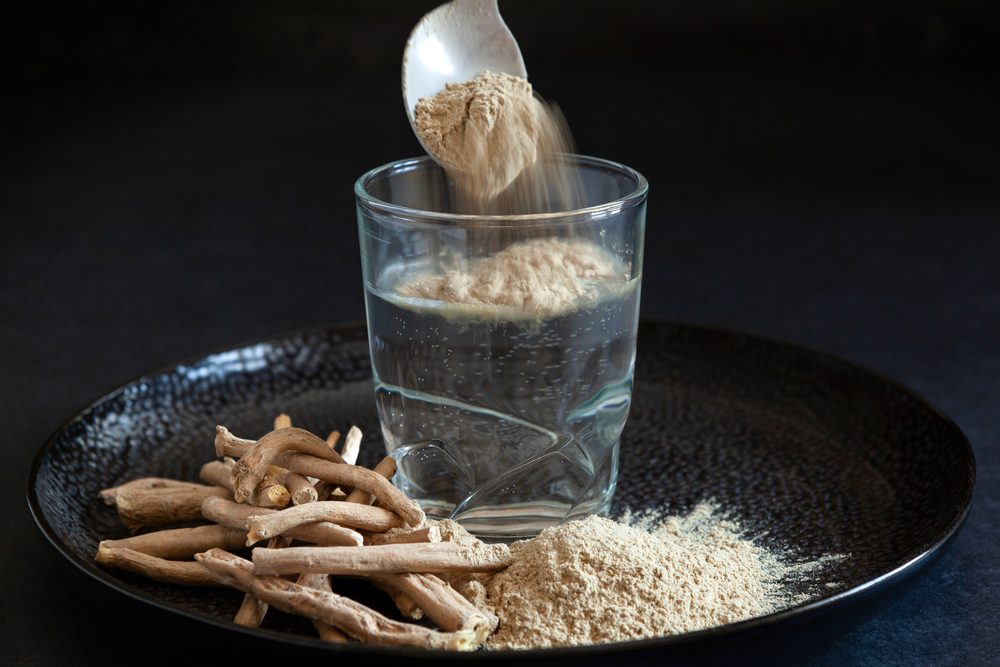In an era of relentless productivity demands and cognitive optimization, the pursuit of mental performance enhancement has spawned a multibillion-dollar industry. While pharmaceutical “smart drugs” like modafinil, methylphenidate, and various amphetamine derivatives dominate headlines and college campuses, a parallel category of cognitive enhancers has emerged from traditional medicine systems and modern nutritional science: natural nootropics.
These compounds, derived from plants, fungi, and naturally occurring amino acids and fatty acids, aim to enhance cognitive function through mechanisms ranging from increasing cerebral blood flow to modulating neurotransmitter systems. As research accumulates, some natural nootropics demonstrate effects that rival their pharmaceutical counterparts, often with more favorable safety profiles and fewer side effects.
Understanding the science of cognitive enhancement
Cognitive enhancement involves multiple neurobiological mechanisms. The most significant include increasing cerebral blood flow and glucose utilization, modulating neurotransmitter systems like acetylcholine and dopamine, protecting neurons from oxidative stress, reducing neuroinflammation, and supporting neuroplasticity through growth factors like brain-derived neurotrophic factor (BDNF).
Different nootropic compounds target these pathways to varying degrees. While synthetic smart drugs often produce dramatic short-term effects through powerful neurotransmitter manipulation, many natural nootropics work through more subtle and sustainable mechanisms, potentially supporting long-term brain health alongside acute performance benefits.
Research methodologies for studying cognitive enhancement vary widely in quality. Double-blind, placebo-controlled studies using validated cognitive assessment tools represent the gold standard, though many natural compounds have more limited research compared to pharmaceuticals. Understanding this evidence hierarchy helps distinguish between well-established effects and more speculative benefits.
Bacopa monnieri (water hyssop)
This Ayurvedic herb has accumulated substantial clinical evidence for memory enhancement. Research published in Neuropsychopharmacology demonstrates that bacopa’s active compounds, bacosides, enhance signal transmission between neurons by modulating dendritic growth in brain regions associated with learning and memory.
Multiple randomized controlled trials show that bacopa significantly improves memory acquisition and retention, with effects becoming most pronounced after 8-12 weeks of consistent use. A meta-analysis published in the Journal of Ethnopharmacology found that bacopa reliably improved attention and information processing compared to placebo.
Unlike stimulant medications that work immediately, bacopa requires consistent administration for benefits to manifest. Its effects appear to build over time as neural pathways adapt to the presence of its active compounds, potentially making it more suitable for long-term cognitive enhancement rather than acute performance boosts.
Lion’s mane mushroom (Hericium erinaceus)
This distinctive fungus contains compounds that stimulate nerve growth factor (NGF) production, a protein crucial for maintaining and regenerating neurons. Research in the International Journal of Medicinal Mushrooms demonstrates that lion’s mane extracts upregulate NGF synthesis in both in vitro and animal models.
Human studies, though more limited, show promising cognitive benefits. A placebo-controlled trial in older adults with mild cognitive impairment found significant improvements in cognitive function scores after 16 weeks of supplementation, with benefits disappearing when supplementation ceased.
Unlike many nootropics that focus on neurotransmitter modulation, lion’s mane appears to work primarily through neurogenesis and enhanced neural maintenance mechanisms. This unique mode of action makes it particularly interesting for age-related cognitive decline and potential neuroprotection.
L-theanine and caffeine combination
This synergistic pairing, naturally occurring in tea, demonstrates cognitive benefits beyond what either compound produces alone. Research in Nutritional Neuroscience shows that L-theanine modifies caffeine’s effects by reducing its anxiety-inducing aspects while preserving or enhancing its cognitive benefits.
EEG studies reveal that this combination increases alpha brain wave activity associated with relaxed alertness, unlike the jittery stimulation often experienced with caffeine alone. Performance tests consistently show improvements in attention switching, visual information processing, and accuracy on demanding cognitive tasks.
Importantly, this combination demonstrates effectiveness in a single dose, making it suitable for situational cognitive enhancement rather than requiring daily supplementation. The typical effective ratio involves twice as much L-theanine as caffeine (e.g., 200mg L-theanine with 100mg caffeine).
Rhodiola rosea (arctic root)
This adaptogenic herb shows particular efficacy in combating mental fatigue and enhancing performance under stress. Studies in Phytomedicine demonstrate that rhodiola’s active compounds, rosavins and salidrosides, modulate stress hormones while influencing neurotransmitter balance.
Controlled trials show that rhodiola significantly reduces mental fatigue and improves performance on cognitively demanding tasks in sleep-deprived individuals and those under significant stress. It appears particularly effective at maintaining cognitive function in suboptimal conditions rather than enhancing performance beyond baseline in well-rested states.
Unlike many pharmaceutical stimulants that deplete neurotransmitters with repeated use, rhodiola appears to normalize stress hormone responses without the same risk of tolerance or rebound effects. This makes it potentially suitable for periodic use during high-demand periods.
Citicoline (CDP-choline)
This naturally occurring brain chemical serves as a building block for acetylcholine and phosphatidylcholine, crucial components of neural membranes. Research published in Neurology shows that citicoline supplementation increases brain phospholipid levels and enhances structural integrity of neural membranes.
Clinical studies demonstrate improvements in attention, focus, and memory with citicoline supplementation, particularly in individuals with some degree of cognitive impairment. A meta-analysis in the International Journal of Clinical Practice found significant benefits for attention and memory across multiple studies.
Unlike dietary choline sources, citicoline appears to cross the blood-brain barrier efficiently and provides both choline and cytidine, which synergistically support brain phospholipid synthesis. These mechanisms potentially support both acute cognitive enhancement and long-term brain health.
Panax ginseng (Asian ginseng)
This traditional herb contains ginsenosides that modulate multiple neurotransmitter systems and enhance nitric oxide production, increasing cerebral blood flow. Research in Psychopharmacology shows that single doses of ginseng extract improve performance on mental arithmetic tasks and reduce mental fatigue.
Studies using standardized cognitive assessments demonstrate that ginseng enhances working memory and attention, with effects becoming apparent within hours of administration. Interestingly, some research suggests its cognitive benefits follow a U-shaped curve, with moderate doses proving more effective than higher amounts.
Unlike many herbal nootropics, ginseng shows acute cognitive enhancement effects similar to some pharmaceuticals. However, research suggests benefits may diminish with chronic use, pointing to potential development of tolerance with daily administration.
Omega-3 fatty acids (EPA and DHA)
These essential fatty acids, concentrated in fatty fish and algae, serve as critical structural components of neural cell membranes and influence neuroplasticity and inflammation. Research in Neuropharmacology shows that DHA in particular accumulates in synaptic regions and affects signal transmission efficiency.
Large-scale studies demonstrate associations between omega-3 intake and cognitive preservation with aging. Intervention trials show mixed but generally positive effects on various cognitive domains, with benefits potentially most pronounced in individuals with suboptimal baseline intake or early cognitive changes.
Unlike most pharmaceutical cognitive enhancers, omega-3s appear to support fundamental brain structure and function rather than temporarily manipulating neurotransmitter systems. This suggests their role may be more significant for long-term cognitive health than acute performance enhancement.
Huperzine A
Derived from Chinese club moss, this compound acts as a potent, reversible acetylcholinesterase inhibitor, effectively increasing acetylcholine levels in the brain. Research in Acta Pharmacologica Sinica demonstrates that huperzine A crosses the blood-brain barrier efficiently and has a longer duration of action than many pharmaceutical cholinesterase inhibitors.
Clinical trials show significant improvements in memory and cognitive function, particularly in elderly populations with cognitive decline. An analysis in the Journal of Neural Transmission found consistent benefits for memory performance across multiple studies.
Though naturally derived, huperzine A’s potency and mechanism parallel prescription medications used for cognitive decline. This makes it one of the most pharmaceutical-like natural nootropics, potentially warranting similar care with dosing and monitoring.
Individual variation in nootropic response
Neurochemical individuality significantly influences nootropic responsiveness. Research in personalized medicine demonstrates that variations in neurotransmitter baseline levels, receptor densities, blood-brain barrier permeability, and metabolic pathways all influence how individuals respond to cognitive enhancers.
Genetic factors, particularly those affecting liver enzymes, neurotransmitter metabolism, and brain-derived neurotrophic factor expression, create significant response variation. Studies published in Molecular Psychiatry show that specific gene variants can predict whether certain cognitive enhancers will prove beneficial or ineffective for specific individuals.
This variability explains why personal experiences with natural nootropics often differ dramatically. What produces notable enhancement in one person may yield minimal effects in another, emphasizing the importance of personalized approaches rather than universal recommendations.
Stacking and synergy considerations
The practice of combining multiple nootropics, known as “stacking,” aims to target multiple cognitive enhancement mechanisms simultaneously. Research in neuropharmacology suggests that compounds affecting complementary pathways often produce greater benefits than single-agent approaches.
Evidence-based combinations include pairing cholinergic compounds like citicoline with circulation enhancers like ginkgo biloba, or combining adaptogenic herbs like rhodiola with direct cognitive enhancers like bacopa. These strategic combinations potentially address multiple aspects of optimal brain function simultaneously.
However, complexity increases potential for interactions. While pharmaceutical smart drugs often have well-documented drug interaction profiles, natural compounds frequently lack such comprehensive assessment despite containing pharmacologically active constituents.
The future of natural nootropics research
As research methodologies advance, natural nootropics are increasingly subjected to the same rigorous assessment as pharmaceuticals. Neuroimaging studies now document how these compounds affect brain activation patterns and network connectivity, providing objective evidence beyond subjective reports.
Standardization and quality control represent significant advances in natural nootropic development. As analytical techniques improve, researchers can better ensure consistent levels of active compounds, addressing a historical weakness in botanical research.
The emerging field of nutrigenomics promises more personalized approaches to cognitive enhancement, potentially allowing individuals to select natural nootropics best suited to their unique genetic and biochemical profiles. This precision approach may eventually replace the current trial-and-error method of finding effective compounds.
For those seeking cognitive enhancement without prescription medications, evidence-based natural nootropics provide increasingly viable alternatives. While they may lack the immediate potency of pharmaceutical options, their generally favorable safety profiles and potential long-term benefits make them worthy of consideration in the broader conversation about cognitive optimization.













